Pergola Plants Guide: Shade and Enhance Your Outdoor Space
While many pergola enthusiasts prefer the spare and elegant lines of a pergola without plants, many prefer the lushness and beauty of a growing plant on one of these garden structures. Growing pergola plants can create ambience and provide privacy and shade to pergola owners. For those who love gardening, this addition can also enhance the look and style of a garden.
The Pros & Cons of Pergola Plants
Before deciding on a vine, you will want to weigh the pros and cons of including a growing vine on your pergola.
The advantages of a growing pergola plants include filtered shade, the scent of flowers, and the fact that these growths can enhance the “garden” feel of a pergola. Although the offered shade from pergola plants may be limited, they can be used in conjunction with retractable canopies to provide maximum protection from the elements (sun and rain) while enhancing the aesthetics of your pergola.
The disadvantages of vines are that they can sometimes create quite a cleanup as they drop leaves and debris throughout the year. Pergola plants are a living thing which will require care an maintenance such as watering, pruning, etc. They can also attract unwelcome guests, such as bees, wasps, or even lizards and snakes.
The best vines for pergolas
The following are some of the best options to consider when selecting a plant for your garden pergola. Each extends aesthetic value with different advantages in various climates.
Bougainvillea
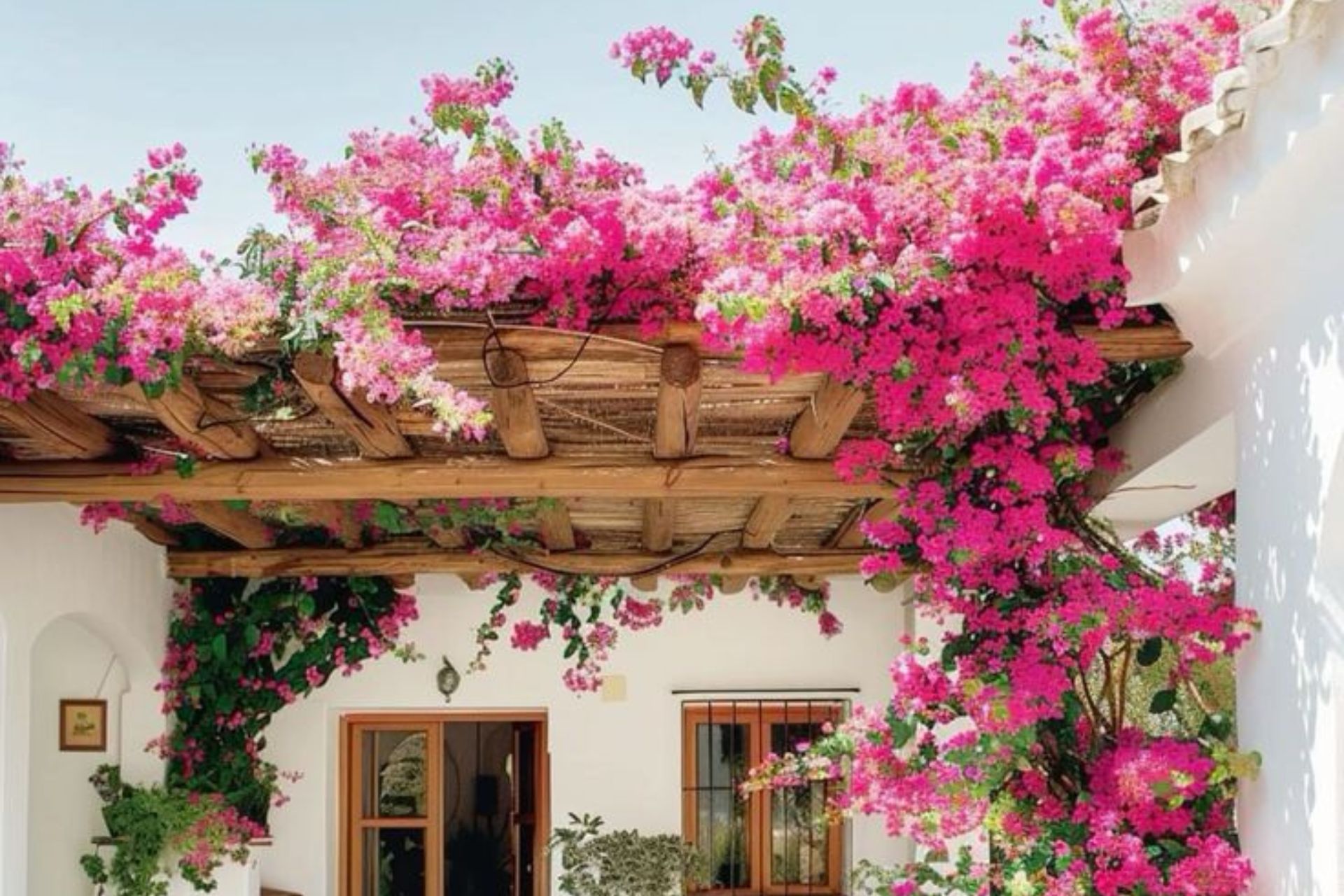
One of the most resilient and brightly colored options, the sometimes thorny bougainvillea works well in full sun and warmer climates. It is not, however, highly resistant to frost and can prove difficult in colder climes.
Royal Trumpet Vine
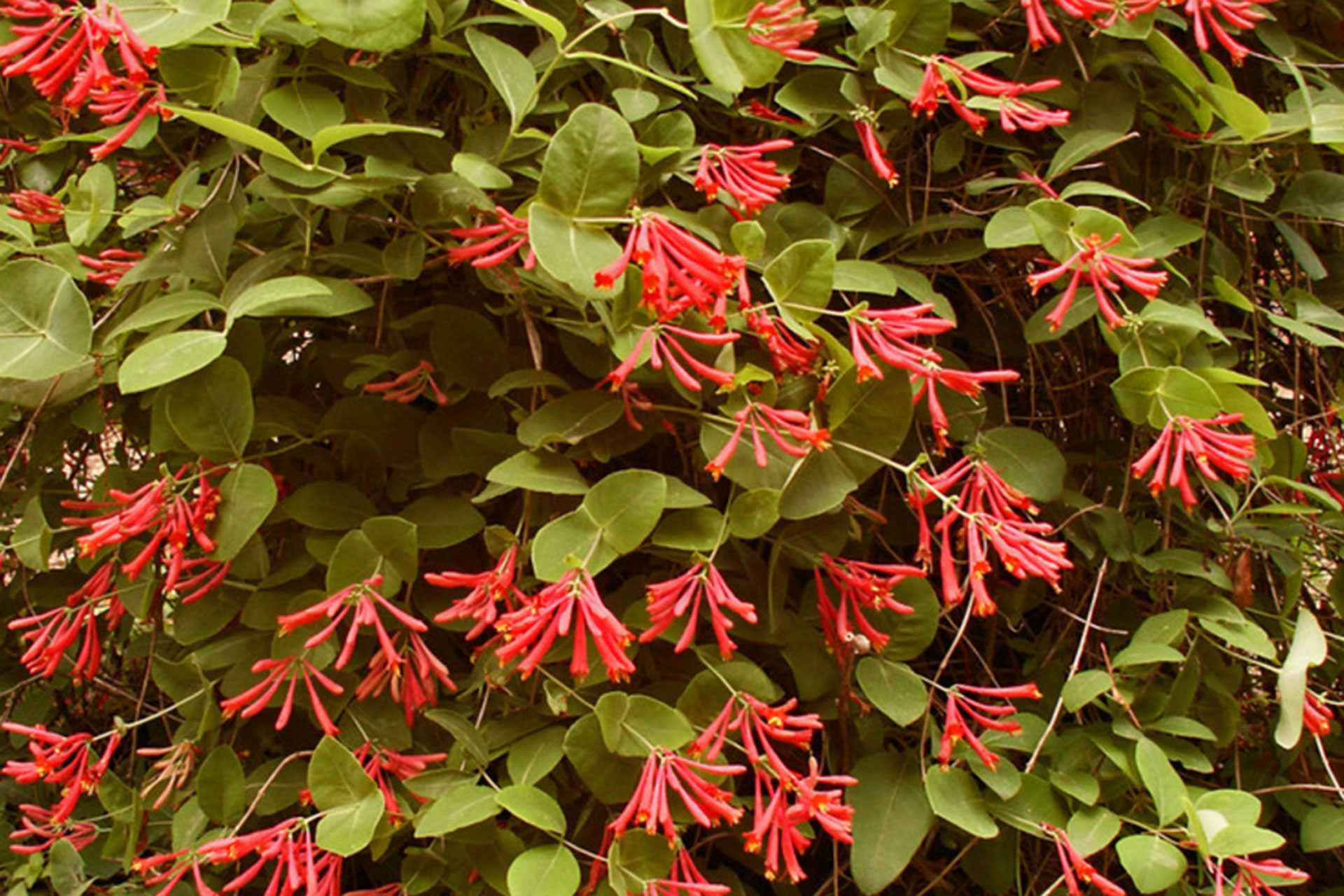
This vine is well-loved by many for its bold lavender shade, as well as its bright, red throat. It grows well in both full sun and partial shade.
Carolina Jessamine
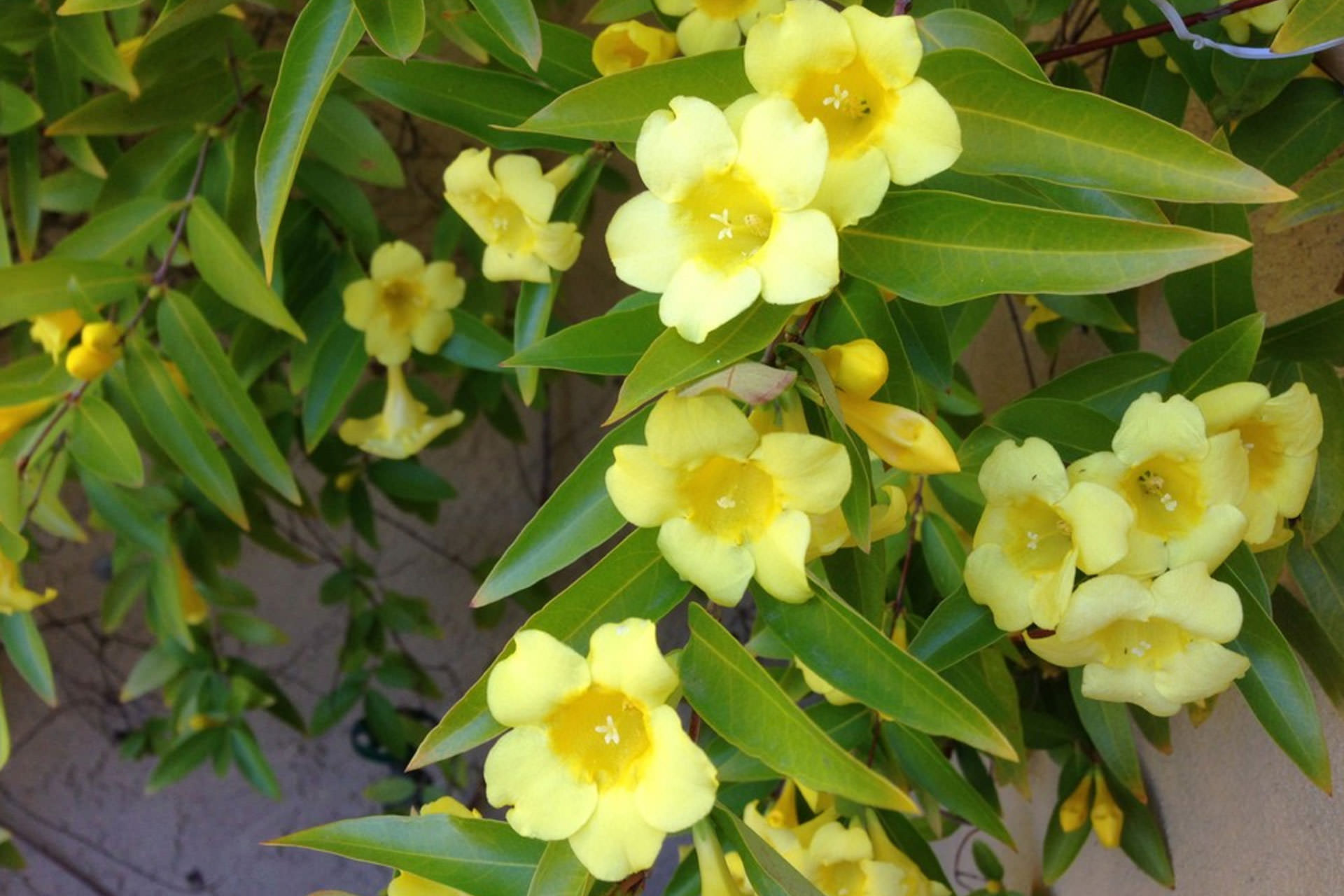
For those who love to fragrance of jasmine, the evergreen Carolina is a good bet. Those with pets,however, may want to avoid the Jessamine, as it can be toxic when ingested. Fragrant yellow blossoms smell like Jasmine.
Bower Vine

The Bower Vine provides a very fresh and clean look to a pergola. It sheds little and grows in an orderly fashion. It is good to go with full sun, but rather, prefers partial sun or partial shade.
Chinese Jasmine
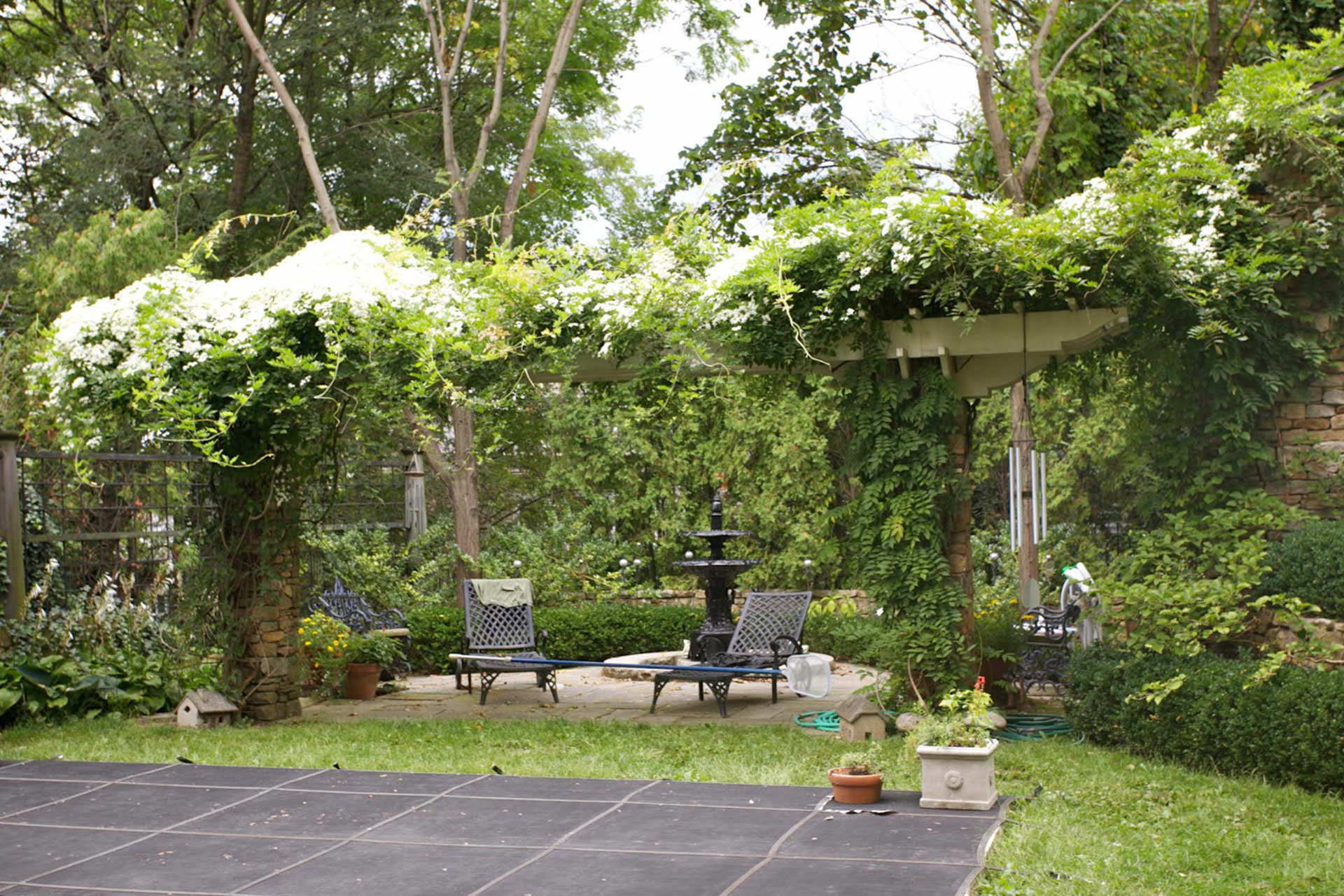
Formally known as Jasminum polyanthum, this fragrant pink and white flower is evergreen and sturdy climber. It is also very easy to maintain and an ideal choice for those who don’t have the greenest of thumbs.
Wisteria

Coming in purple, blue, and white varieties, this popular plant grows in thick clusters and features beautiful, deep green leaves. While one of the lovelier options, wisteria can be quite messy during its blooming season. It is also toxic to dogs, so dog lovers may need to avoid this choice.
Do you have a favorite growing plant that you think would make a great addition to a pergola?
Retractable Solutions for Outdoor Spaces
Please complete the form below to download our free eBrochure.
Price List included
Related Posts
May 5, 2014
Garden Design Tips: Outdoor Rooms
October 10, 2013
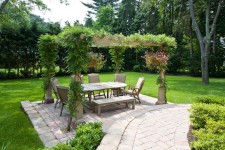

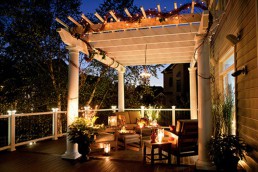
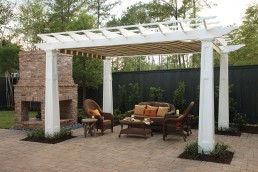
This is a helpfull article. Thank you!
I have been told that wisteria grows like mad and therefore requires frequent aggressive pruning. Any truth to that?
Yes! With its rapid growth comes the need for frequent pruning. Wisteria indeed requires aggressive pruning to keep it under control and prevent it from taking over your garden. The best time to prune wisteria is in late winter or early spring before new growth begins. This will help encourage more flowers and prevent the plant from becoming too unruly. Pruning should also be done throughout the growing season to keep the vine in check.
Thanks for the reply. Also, is the mess just fallen pedals/flowers or is there a sticky component to it? I live in a hot dry climate and these vines would get a lot of direct sunlight. I can guess the flowers will burn up, but will the plant wither in such conditions?